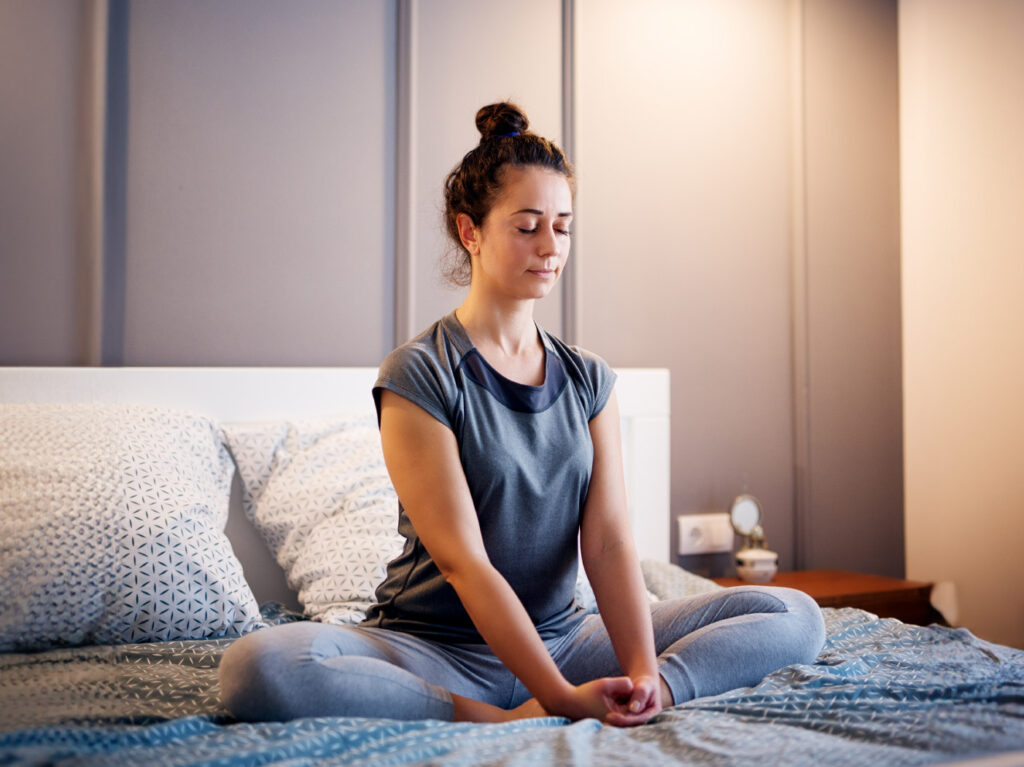Sleep hygiene comprises all the healthy habits which help to improve your sleep pattern. Experiencing good sleep is significant to help you maintain your mental and physical health, as well as your overall quality of life. You are more focused, more productive and more present when you sleep well. Good sleep helps to strengthen your immune system and reduces your risk of health conditions like diabetes and heart disease. However, your sleep health is not only dependent on what you do before bedtime but relates to your behaviour during the day too.
SIGNS OF POOR SLEEP HEALTH
Different individuals face different sleep problems as per their varying lifestyles. Some face serious insomnia, and others have sleep disorders like obstructive sleep apnea.Signs of poor sleep health which include difficulty sleeping, frequent sleep disturbances, and daytime sleepiness can be cured with the right sleep tips in place.
SLEEP HYGIENE TIPS
HEALTHY DAILY HABITS
- Daylight exposure
Sunlight is an important component promoting the sleep hormone, melatonin. Therefore, getting light early in the morning can be used as a light therapy to treat sleep disorders as it maintains the circadian clock. Aim to go out in the sun about one hour after waking up. If natural light is not available, light boxes can be used which emit artificial light.
- Physical activity

The level of physical activity you perform during the day affects your sleep in different ways. Acute exercise can have a small effect on sleep quality, whereas moderate exercise can extend your sleep duration and quality. People with insomnia can benefit from moderate resistance training and stretching exercises too. Doing this leads them to have fewer waking episodes during the night, longer sleep duration and less overall anxiety.
Aerobic exercises in the morning help you sleep better too, but high-intensity workouts within an hour of bedtime can negatively affect your sleep health and keep you up at night.
- Reduce smoking and drinking
Those who smoke cigarettes frequently experience sleep problems such as sleep-disordered breathing, insomnia and sleep disturbances like shorter sleep duration, sleep latency and daytime sleepiness. Large amounts of alcohol prior to sleep decrease sleep onset latency and bring about a change in sleep architecture early in the night, followed by poor, disrupted sleep later in the night.
- Avoid stimulants like caffeine
Although sensitivity to caffeine varies from individual to individual, it induces wakefulness in every person. The sleep-inducing chemical adenosine is blocked when we consume caffeine less than eight hours before bedtime. This also results in sleeping fewer hours overall and making your sleep feel less satisfying. If you are a caffeine addict, try following the 90-minute coffee rule. This rule says if you wait for 90 minutes after waking, you allow your body to rely more on its natural wakefulness mechanisms rather than getting addicted to some external source.
- Avoid dining late
The timing of food intake is an important factor in determining the sleep pattern of an individual. Eating heavily in late evenings doesn’t let you reach REM sleep easily and increases the chances of waking up after falling asleep. In this context, both the volume of food and the type of food consumed are also important factors. If you are not eating well and at the right time, you are interfering with the normal digestive mechanism of the body, which will impede your sleep quality.
SLEEP HYGIENE TIPS DURING BEDTIME
- Consistent sleeping time
Being consistent means you go to bed and wake up at the same time every day. This helps to set up the body’s clock, which will help you sleep better!
- Follow a sleep routine
Try following the same steps each night. For example, put on your pyjamas, brush your teeth or read a book in the same order. These activities help to reinforce in your mind that it is bedtime and allows you to fall asleep quickly.
- Unplug your electronics
Stay in your bed for 30-60 minutes without your electronic devices like cell phones, tablets and laptops. This keeps you away from the blue light of your screens, which leads to decreased melatonin production that we need to help induce our sleep.
- Dim your lights
Keep away from bright lights as they also hinder the production of melatonin, a hormone facilitating sleep. For this, you can use heavy impermeable curtains in your bedroom or block out light with an eye mask while sleeping.
- Maintain a cool temperature
Fine tune your bedroom temperature on the cooler side, around 65 degrees Fahrenheit is a great temperature to go to bed to. Dropping the thermostat of your room works as an indicator that bedtime is approaching and promotes the release of the sleep hormone, melatonin.
- Use comfortable bedding
The sheets, blanket and pillows are the first thing you touch when you get into your bed. So, selecting a comfortable sleeping surface will ensure a comfortable and pain free sleep.
- Methods of relaxation

If you are stressed before bed take some time to calm down. Do a meditation on your phone, listen to soft music, practice mindfulness, or focus on your breathing. These are some effective techniques and are easy to do too!
- The bed is to sleep
Assign your bedroom only for resting. Do not place your desk or television in your bedroom. This will build a strong association between your bed and sleep, promoting your sleep health.
CONCLUSION
Maintaining sleep health may simply be a matter of adjusting your habits but must become a priority. These sleep hygiene tips are science-backed practices that we must take seriously if we want to get a good night’s sleep and feel rested for the next day.
Download the JOYSCORE app to ease your life with more healthy habits.
Download on the Appstore
Get it on Google Play



